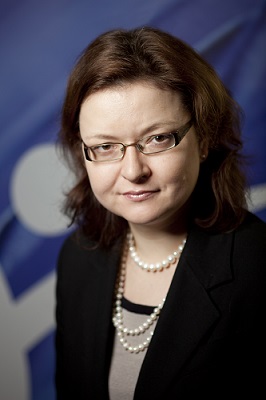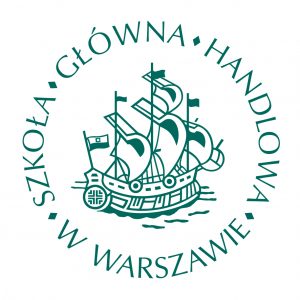Research team leader from the Warsaw School of Economics – dr hab. Zbigniew Grzymała, prof. SGH.

Dr hab. Zbigniew Grzymała, prof. SGH, heads the Department of Economics and Finance of Local Government at the College of Management and Finance of the Warsaw School of Economics. The main field of research interests of dr hab. Z. Grzymała is: index analysis of the enterprise (balance sheet, income statement, employment, and wages, fixed assets, etc.); strategic analysis of the organization (creating the development strategy of the organization, especially local government units) analysis of the commune budget (income, expenditure); analysis and assessment of the effectiveness of investment outlay in infrastructure, including logistics infrastructure, cost-benefit analysis, business plan and feasibility studies of investment projects, product life cycle in municipal industries, public sector economics, economic policy, spatial policy, space management, restructuring of the municipal sector, environmentalist, property management. He participated, inter alia, in the following projects: the National Environmental Protection Fund, which resulted in legislative changes to the act on maintaining cleanliness and order in the commune and on the maximum rates for fees for collection and management of municipal waste.
He participated with other team members in the project “Eco-innovations in cities, Financing institution: The National Center for Research and Development, POKL.04.03.00-00-249 / 12, 2013-2015” organized by the College of Enterprise Sciences, completing an internship in the USA or urban regeneration projects with the participation of this college and the Jagiellonian University in Krakow. He was an expert of PARP, OPI, as well as the Marshal’s Office of the Mazowieckie Voivodeship in action 3.4. IROP micro-enterprises. He is the author and co-author of many publications, expert opinions and scientific research, including:
- Wybrane zagadnie rozwoju lokalnego i regionalnego oraz proces restrukturyzacja gospodarki komunalnej, w: Gospodarka i finanse samorządu terytorialnego, praca zbiorowa pod red. G. Maślocha i J. Sieraka, SGH, Warszawa 2013
- Racjonalizacja gospodarki odpadami w Polsce (red. M. Goleń), Oficyna Wydawnicza SGH, Warszawa 2017
Wytyczne dotyczące ustalenia maksymalnych i minimalnych stawek opłat za gospodarowanie odpadami komunalnymi z analizą kosztów gospodarki odpadami komunalnymi, ponoszonych przez gminę̨ (Współautorzy: P. Hossa, M. Goleń)
Research projects: - Uwarunkowania wykorzystania funduszy UE przez jednostki samorządu terytorialnego w aspekcie perspektywy finansowej na lata 2014-2020.Badanie statutowe, kierownik: dr Grzegorz Maśloch
- Gospodarka i finanse samorządu terytorialnego w świetle zmian modelu zarządzania sektorem publicznym, Część nt. przekształceń własnościowych przedsiębiorstw gospodarki komunalnej i mieszkaniowej – uwarunkowania i efekty (wraz z zespołem Zakładu zarządzania i finansów gospodarki komunalnej i mieszkaniowej-2005 r.)
- Restrukturyzacja sektora komunalnego w Polsce – aspekty organizacyjno-prawne i ekonomiczne, Warszawa 2010. Grant habilitacyjn
- „Rewitalizacja miast – organizacja i finansowanie”, realizowanego przez Szkołę Główną Handlową w partnerstwie z Uniwersytetem Jagiellońskim, obejmującego innowacyjne szkolenia oraz studia podyplomowe z zakresu zarządzania i finansowania przedsięwzięć rewitalizacyjnych w polskich miastach. Kierownik dr Aleksandra Jadach-Sepioło. Tytuł opracowania własnego „Rewitalizacja Przasnysza” Nazwa zamawiającego: Szkoła Główna Handlowa.
- System monitoringu dla MMŚP wielkopolskiego sektora komunalnego. Tytuł projektu: „Wskaźniki monitoringu dla przedsiębiorstw gospodarki odpadami. Kierownik projektu: Zenon Kiczka; Jednostka realizująca projekt: Holdikom S. A., ul Partyzancka 27, 63-400 Ostrów Wielkopolski; Koordynator projektu: Dariusz Kowalski – Prezes Zarządu Spółki.
 Dr hab. Agnieszka Chłoń-Domińczak is an assistant professor at the Warsaw School of Economics and the Educational Research Institute. In the past – deputy minister and director of the Department of Economic Analysis and Forecasting at the Ministry of Labor and Social Policy. She was the vice-chairman of the Social Protection Committee. She participated in the work of the team preparing the pension reform of 1999. Her research interests include demography, pension systems, labor market, social policy, health, and education. Knowledge of the shaping of socio-economic processes in the context of the labor market and the social situation, very good knowledge of the functioning of pension systems, social benefit systems (doctoral thesis on the sustainability of pension systems in the light of an aging population), the functioning of qualifications systems, including learning by lifetime. Theoretical and practical knowledge of social policy and its reforms, with particular emphasis on demographic changes. Knowledge of the functioning of macroeconomic and microeconomic models, the ability to build such models. International experience, many years of cooperation with the OECD and the European Commission.
Dr hab. Agnieszka Chłoń-Domińczak is an assistant professor at the Warsaw School of Economics and the Educational Research Institute. In the past – deputy minister and director of the Department of Economic Analysis and Forecasting at the Ministry of Labor and Social Policy. She was the vice-chairman of the Social Protection Committee. She participated in the work of the team preparing the pension reform of 1999. Her research interests include demography, pension systems, labor market, social policy, health, and education. Knowledge of the shaping of socio-economic processes in the context of the labor market and the social situation, very good knowledge of the functioning of pension systems, social benefit systems (doctoral thesis on the sustainability of pension systems in the light of an aging population), the functioning of qualifications systems, including learning by lifetime. Theoretical and practical knowledge of social policy and its reforms, with particular emphasis on demographic changes. Knowledge of the functioning of macroeconomic and microeconomic models, the ability to build such models. International experience, many years of cooperation with the OECD and the European Commission.
Selected publications:
- Chłoń-Domińczak, A. 2017. Gender Gap in Pensions: Looking Ahead. Study for the FEMM Committee, European Parliament
http://www.europarl.europa.eu/thinktank/en/document.html?reference=IPOL_STU(2017)583150 - Chłoń-Domińczak, A., A.Żurawski. 2017. Measuring skills mismatches revisited – introducing sectoral approach. Instytut Badań Strukturalnych, working paper.
- Chłoń-Domińczak, A. 2017. Generational distriubtion of consumption and income in Poland in the context of population ageing [Międzypokoleniowy rozkład konsumpcji i dochodów w Polsce w kontekście starzenia się ludności], in: P.Lewandowski, J.Rutkowski (eds.). Population ageing, labour market and public finance in Poland [Starzenie się ludności i finanse publiczne w Polsce], Instytut Badań Strukturalnych and European Commission Representation in Poland, Warsaw, pp. 17-22, ISBN 978-92-79-66266-9 doi:10.2775/9 // ISBN 978-92-79-66265-2 doi:10.2775/210871
- Chłoń-Domińczak, A., A.Kraśniewski 2017. Poziom 5. w Polskiej Ramie Kwalifikacji i jego stan formalny. In: Chmielecka E., Kraśniewska N. (red.), 2017. Poziom 5 – brakujące ogniwo? Podsumowanie. Fundacja Rektorów Polskich, Warszawa, pp. 27-34
- Chłoń-Domińczak, A. 2017. Uzasadnienie społeczne dla kształcenia na 5. poziomie Polskiej Ramy Kwalifikacji w kontekście rozwoju kapitału ludzkiego. In: Chmielecka E., Kraśniewska N. (red.), 2017. Poziom 5 – brakujące ogniwo? Podsumowanie. Fundacja Rektorów Polskich, Warszawa, pp. 35-50
 Prof. dr hab. Jan Klimek – vice president of the Polish Craft Association and president of the Katowice Chamber of Crafts and Small and Medium Enterprises. Participant in the social dialogue forum – previously as a member of the Tripartite Commission at the Ministry of Labor and Social Policy, and since December 2015 – a member of the Social Dialogue Council appointed by the President of the Republic of Poland. Author of many theoretical and practical studies, incl. The role of strategic management in the development of entrepreneurship; The role and importance of employees in the sector of small and medium-sized enterprises; Employees in the sector of small and medium-sized enterprises – their role and importance; What about our entrepreneurship? Entrepreneurship without secrets. He is also a co-author of numerous studies with professor Mario Raich, incl. The art of entrepreneurship; The art of personal development; Entrepreneurship prospects; Creative solutions in the business. He co-founded and managed a Polish-Swiss project to support entrepreneurship in Poland. This project was appreciated by entrepreneurs who, thanks to it, expanded their knowledge and deepened their skills in the field of management and operation of companies. He is a member of the European Economic and Social Committee in Brussels. He works in the Section of Employment, Social Affairs and Citizenship (SOC) and in the Section of the Single Market, Production and Consumption (INT). He is also a labor market observer at the EESC. In 2015, he prepared the opinion of the Section for the Single Market, Production and Consumption on family businesses in Europe as a source of renewed economic growth and better jobs.
Prof. dr hab. Jan Klimek – vice president of the Polish Craft Association and president of the Katowice Chamber of Crafts and Small and Medium Enterprises. Participant in the social dialogue forum – previously as a member of the Tripartite Commission at the Ministry of Labor and Social Policy, and since December 2015 – a member of the Social Dialogue Council appointed by the President of the Republic of Poland. Author of many theoretical and practical studies, incl. The role of strategic management in the development of entrepreneurship; The role and importance of employees in the sector of small and medium-sized enterprises; Employees in the sector of small and medium-sized enterprises – their role and importance; What about our entrepreneurship? Entrepreneurship without secrets. He is also a co-author of numerous studies with professor Mario Raich, incl. The art of entrepreneurship; The art of personal development; Entrepreneurship prospects; Creative solutions in the business. He co-founded and managed a Polish-Swiss project to support entrepreneurship in Poland. This project was appreciated by entrepreneurs who, thanks to it, expanded their knowledge and deepened their skills in the field of management and operation of companies. He is a member of the European Economic and Social Committee in Brussels. He works in the Section of Employment, Social Affairs and Citizenship (SOC) and in the Section of the Single Market, Production and Consumption (INT). He is also a labor market observer at the EESC. In 2015, he prepared the opinion of the Section for the Single Market, Production and Consumption on family businesses in Europe as a source of renewed economic growth and better jobs.
His latest publications are as follows:
- Jan Klimek, Strategia MSP. Przedsiębiorczość – Konkurencyjność – Rozwój, Ementon, Warszawa 2017
- Wybrane paradygmaty zarządzania firmami rodzinnymi, red. J. Klimek, B. Żelazko, Oficyna Wydawnicza SGH, Warszawa 2017
- Przedsiębiorczość bez tajemnic, Wydawnictwo Adam Marszałek, Toruń 2016
 dr hab. Rafał Kasprzak, prof. SGH, an employee of the Institute of Finance, Project Manager of the Academy of Creativity and Innovation of the Warsaw School of Economics, including a start-up acceleration program, developing a methodology for implementing innovations according to the Desigh Thinking method and implementing innovations in the field of responsible management. Project financed by POWER, Measure 3.1., Implementation period IV.2017 to II.2020; task manager 4.
dr hab. Rafał Kasprzak, prof. SGH, an employee of the Institute of Finance, Project Manager of the Academy of Creativity and Innovation of the Warsaw School of Economics, including a start-up acceleration program, developing a methodology for implementing innovations according to the Desigh Thinking method and implementing innovations in the field of responsible management. Project financed by POWER, Measure 3.1., Implementation period IV.2017 to II.2020; task manager 4.
He is the author of the following publications, expert opinions:
- Fundusze unijne. Szansa na rozwój małych i średnich przedsiębiorstw. Budżet na lata 2014 – 2020, Wydawnictwo Onepress, Gliwice 2016.
- Marketing of Places for Management and Economics, Oficyna Wydawnicza SGH, Warszawa 2015. Współautor: M. Bombol. Recenzent: A.Giovanelli
- The Development of Creative Industries in Poland – Opportunities for Entrepreneurial Development or just a Temporary Fashion, W: Zarządzanie – nowe perspektywy. Heurystyczne podejście do innowacyjności. Red. J.D. Antoszkiewicz, E. Gołebiowska. Społeczna Akademia Nauk, Łódź-Warszawa 2015, s. 109-130
- Model IDEA jako paradygmat polityki gospodarczej skierowanej na wsparcie sektora kreatywnego, W: J. Kurowska-Pysz, Ł. Wróblewski (Red) Wybrane problemy zarządzania i marketingu w instytucjach kultury. Wyższa Szkoła Biznesu w Dąbrowie Górniczej, Dąbrowa Górnicza 2015
- Creative industries in the Polish economy,W: Quaestiones Geographicae, Uniwersytet im. Adama Mickiewicza w Poznaniu, 34(2)/2015, Poznań 2015, s. 35 – 43
- Fundusze strukturalne a zmiany zachowań małych i średnich przedsiębiorstw, W: Zmiany zachowań małych i średnich przedsiębiorstw w okresie spowolnienia gospodarczego, Red. A. Skowronek-Mielczarek, Szkoła Główna Handlowa w Warszawie – Oficyna Wydawnicza, Warszawa 2015
 Prof. Dr hab. Krzysztof Marecki is related to the broadly understood issues of finance, including general finance and company finance. Within these scientific disciplines, I specialize in financial management, economic and financial analysis, financial planning, management accounting, and cost accounting. He verifies his scientific interests in business practice by conducting empirical research and carrying out various assessments and analyses as a national and EU expert. He was an expert of the Local World Bank / economic and financial analysis of agricultural environment entities in Poland); European Union expert – small and medium-sized enterprises; expert of the Marshal’s Office – evaluation of applications for co-financing under individual programs; expert of the State Accreditation Committee.
Prof. Dr hab. Krzysztof Marecki is related to the broadly understood issues of finance, including general finance and company finance. Within these scientific disciplines, I specialize in financial management, economic and financial analysis, financial planning, management accounting, and cost accounting. He verifies his scientific interests in business practice by conducting empirical research and carrying out various assessments and analyses as a national and EU expert. He was an expert of the Local World Bank / economic and financial analysis of agricultural environment entities in Poland); European Union expert – small and medium-sized enterprises; expert of the Marshal’s Office – evaluation of applications for co-financing under individual programs; expert of the State Accreditation Committee.
He is the author and co-author of many publications, expert opinions, and scientific research, such as:
- Marecki K., Planowanie finansowe, W: Finanse przedsiębiorstwa, red. L. Szyszko,
J. Szczepański, PWE, Warszawa 2003 - Marecki K., Zarządzanie aktywami obrotowymi przedsiębiorstwa, w: Finanse przedsiębiorstwa,( red.) L. Szyszko, J. Szczepański, PWE, Warszawa 2003
- Marecki K, Wieloch M, Kredyt – pojęcie, klasyfikacja, funkcje kredytu oraz mechanizm kreacji pieniądza, w: Propedeutyka finansów, (red.) L. Szyszko, Oficyna Wydawnicza SGH, Warszawa 2004
- Rachunkowość zarządcza ( red. wspólnie z dr Maciejem Wielochem)), Oficyna Wydawnicza SGH, Warszawa 2017- w recenzji Dla grupy Kapitałowej Azoty (2011-2016)
- Poszukiwanie wartości spółki w warunkach kryzysu
- Finansowe aspekty funkcjonowania przedsiębiorstw
- Zarządzanie kapitałem obrotowym
- Budowa mapy ryzyka przedsiębiorstwa oraz określenie wpływu ryzyka na wartości Spółki
- Fuzje przedsiębiorstw – przyczyny niepowodzeń (przy wykorzystaniu konkretnych przykładów), wskazanie działań, jakie w trakcie procesu łączenia podmiotów należy podejmować, celem przeprowadzenia procesu z sukcesem
- Projekty inwestycyjne jako narzędzie generowania wartości przedsiębiorstwa. Budżetowanie kapitałowe, metody opłacalności projektów: NPV, IR
 Karol Przanowski, PhD Assistant professor at the Institute of Statistics and Demography of the Warsaw School of Economics. A graduate of theoretical mathematics at the University of Lodz and a doctor of theoretical physics.
Karol Przanowski, PhD Assistant professor at the Institute of Statistics and Demography of the Warsaw School of Economics. A graduate of theoretical mathematics at the University of Lodz and a doctor of theoretical physics.
Scientifically he deals with the theoretical side of Credit Scoring. He has extensive experience in analyzing the Consumer Finance portfolio and creating data simulators that reflect the portfolio’s processes. He is an expert in the SAS System, advanced programming, and statistical analysis. He is the author of many of his own SAS 4GL programs for building models of scoring cards. Tutor of the Business Analytics Student Science Club. He conducts one-of-a-kind classes in “Credit Scoring and macro-programming at SAS”. Responsible in large banks of capital groups for building, implementing, and monitoring predictive models for IRB and IFRS9, creating automated CRM processes, managing campaigns and offers, creating automatic budgeting and planning processes.
ARTICLES:
- Karol Przanowski, Credit Scoring – studia przypadków procesów biznesowych. Oficyna Wydawnicza SGH, Warszawa 2015 – wyróżniona nagrodą Rektora SGH.
- Karol Przanowski, Praca statutowa: SGH KAE/S/43/14, „Prognozowanie kryzysu portfela Consumer Finance”, Warszawa, czerwiec 2015
- Karol Przanowski, Credit Scoring w erze Big Data. Oficyna Wydawnicza SGH, Warszawa 2014 – wyróżniona nagrodą Rektora SGH.
- Karol Przanowski, Rola danych symulacyjnych w badaniach Credit Scoring. Monografia, Statystyka w służbie biznesu i nauk społecznych, Wydawnictwo Wyższej Szkoły Menedżerskiej w Warszawie. Warszawa 2014, strony 219–242.
- Karol Przanowski, Praca statutowa: SGH KAE/S/43/13, „Techniki budowy kart skoringowych w Credit Scoring – wykorzystanie generatora danych losowych portfela Consumer Finance”, Warszawa, wrzesień 2013
- W. Grzenda, A. Ptak-Chmielewska, K. Przanowski, U. Zwierz, PRZETWARZANIE DANYCH W SAS – SGH, . Oficyna Wydawnicza SGH, Warszawa 2012
- Karol Przanowski, Jolanata Mamczarz, Generator danych Consumer Finance – metody porównywania technik modelowych w Credit Scoring, Zeszyty Naukowe Uniwersytetu Ekonomicznego w Poznaniu, 239, strony 97–111, Poznań 2012
- Karol Przanowski, Banking retail consumer finance data generator – credit scoring data repository, e–FINANSE, 9(1), strony 44–59, 2013
Other members of the research team from the Department of Economics and Finance of the Local Government specialize in the fields of local government finance, renewable energy, local government unit management, architecture and urban planning. Their expertise also contributed to the amendment of the Public Finance Act. Some of them also act as stewards of local government units. The list of selected publications is as follows:
- G. Maśloch, Finansowanie inwestycji publicznych na poziomie lokalnym i regionalnym, Funkcja: kierownik badania, Krajowy projekt badawczy, Organizatorzy badania/projektu: Kolegium Zarządzania i Finansów SGH, Instytucja finansująca: Minister Nauki i Szkolnictwa Wyższego, 2015;
- G. Maśloch, Z. Grzymała, A. Cenkier, Staże dla pracowników naukowych na Mazowszu, Funkcja: odbycie stażu, Projekt zrealizowany w ramach POKL 2007-2013, Priorytet VIII „Regionalne kadry gospodarki”, Działanie 8.2 „Transfer wiedzy”, Poddziałanie 8.2.1 „Wsparcie dla współpracy sfery nauki i przedsiębiorstw-projekty konkursowe”. 2013.
- G. Maśloch, The importance of renewable energy sources for sustainable development of Polish regions, Prace Naukowe Uniwersytetu Ekonomicznego we Wrocławiu, Nr 431, Wrocław 2016, ISSN: 1899-3192;
- G. Maśloch, K. Jarosiński, B. Opałka, Z. Grzymała, Financing and management of public sector investments on local and regional levels, PWN, Warszawa 2015, ISBN 978-83-01-18459-9;
K. Sadowy, Planowanie partycypacyjne jako czynnik zrównoważonego rozwoju, w: „Ekologia konstruktywnie. Zrównoważony rozwój terenów zurbanizowanych”, red. M. Szabłowski, Warszawa 2016 - K. Sadowy, Ryzyko w biznesie związane z układem funkcjonalno-przestrzennym miast (z M. Sadowy), Zarządzanie ryzykiem w biznesie – inteligentne narzędzia, red. J. Jurczak, Uczelnia Techniczno-Handlowa im. H. Chodkowskiej, Warszawa 2016
- J. Sierak, Gospodarka budżetowa i polityka finansowa jednostek samorządu terytorialnego u progu nowej perspektywy unijnej 2014-2020. Ocena sytuacji finansowej jednostek samorządu terytorialnego – 2014 – Uczelnia Łazarskiego





